What now? Despite the length of the hustings, none of the questions about the future of the rail industry have been answered, says Christian Wolmar.
I am, of course, writing this before the result of the General Election is known. But my assumption is that Sir Keir Starmer is now safely ensconced in Downing Street.
What now? Despite the length of the hustings, none of the questions about the future of the rail industry have been answered, says Christian Wolmar.
I am, of course, writing this before the result of the General Election is known. But my assumption is that Sir Keir Starmer is now safely ensconced in Downing Street.
From my numerous conversations with key players in the industry, uncertainty is the overriding feeling in the industry - even among those who will be directly affected by Labour’s plans to move the franchises back in-house.
An article in the Sunday Times on June 30, which included an interview with Shadow Transport Secretary Louise Haigh, was well-informed but still failed to answer fundamental questions about how plans for the future of the railways will play out in the coming months.
While ‘taking over the franchises’ seems a simple enough concept, it does not take much digging to realise the complexity of the task.
One key imponderable is the attitude of the companies that will no longer have a role in the business. It is worth noting here that several have already thrown the towel in or been gently pushed out, such as Stagecoach and National Express.
And there has not been exactly an influx of those waiting on the substitutes bench to join the fray. There is even speculation that while some players may simply not bother trying to remain in the business, others may fight to the last and ‘lawyer up’.
Interestingly, the newest boy on the block is Transport UK, a management buyout team which took over Abellio’s franchises at the beginning of last year.
By chance, the first two franchises which would be the subject of a takeover by the new government are Greater Anglia and West Midlands, owned by Transport UK and both of which come up for review in September.
Unlike some owning groups, Transport UK seems to have taken a conciliatory approach to Labour’s plans so far. But the imminent loss of these two deals - which, in fact, represent the great majority of its turnover, apart from London bus contracts - may mean the company will try to prolong the current arrangement as long as possible. In line with past practice, the company could have normally expected to receive a two-year extension based on its good performance record.
Until now, the franchises which have been folded into the Department for Transport’s Operator of Last Resort have either got into financial or performance difficulties (East Coast, Northern, TransPennine Express) or been the subject of fraud investigations (Southeastern).
There is no legal basis for the government to simply take over a franchise contract because, under current legislation, they are supposed to be privatised. Certainly, from my conversations with industry insiders, there is uncertainty about the legal ramifications of Labour’s plans.
Labour ministers will point out that the railways in Scotland and Wales have effectively been nationalised, while East Coast has been run by the Operator of Last Resort (OLR) since 2018.
But this may not be sufficient to prevent a challenge from Rail Partners, the association of railway companies which has been very aggressive in its statements about Labour’s plans. Indeed, I understand that there are numerous law firms in the City which have been asked to look at the legality of Labour proposals.
The view among some owning groups is that Labour cannot push through these plans without legislation, and that rather than using the OLR, the franchises will have to be taken over by Great British Railways, which will need a statutory footing. Well, at least there will be plenty to write about for this column!
There is certainly a stronger case for Labour’s desire to put an end to Avanti’s misery on the West Coast.
Louise Haigh (expected to take over as Transport Secretary) has long had her eyes on the poor-performing Avanti, which was only allowed to continue by the Conservative government because it did not want to be seen to be renationalising such a major contract, as it would have been seen as supporting Labour’s plans.
However, West Coast is a major and complex franchise that is far from an ideal candidate for the first Labour takeover.
The plan is to use the current Operator of Last Resort, which already controls four franchises and which appears to be about to be renamed as National Train Operator (NTO).
This will be a significant burden for the operator, both because of the mess that Avanti is in and the inherent difficulties of reducing delays and cancellations.
At root, there is the issue of Sunday and rest day working, which cannot be resolved without co-operation from the trade unions. And even if the unions are prepared to treat a Labour government rather more kindly than its predecessor, this will still come at a cost - possibly one that is too heavy for the new administration’s parlous finances.
FirstGroup, which has a major stake in Avanti as well as controlling South Western Railway and Great Western Railway, seems to be hedging its bets. As well as being quite aggressive behind the scenes in opposing Labour’s planned takeover, it has also been strongly promoting the concept of open access.
Cutbacks in the timetable mean there are paths available and therefore bidders have been seeking to fill them with open access bids - most prominently FirstGroup.
There is disquiet at the Department for Transport about whether FirstGroup’s focus on open access conflicts with its role as the major shareholder in Avanti - not least because Managing Director Steve Montgomery is now focusing on open access.
And this puts the spotlight on the contradictions inherent in Labour’s stated policies.
Labour’s manifesto extols the virtues of open access, despite the fact that essentially these operators provide a very limited service to a few destinations, and that despite the efforts of the regulator, inevitably abstract passengers and revenue from the franchisees.
They do not pay the full cost of their access, and therefore are being cross-subsidised by the main operators whose revenue, even before they are renationalised, all goes to the government.
This is the trap of trying to please everyone into which Labour more widely has fallen.
Just look at its fawning statements about how cars are the key to our transport system, and how taking the driving test is a coming of age for young people. Has it not noticed that teenage drivers pay such exorbitant insurance that only the well-heeled can afford to get behind the wheel?
Labour cannot emphasise the importance of moving towards more sustainable forms of transport while also suggesting that driving will always be the most important way of getting around.
Choices have to be made - and that certainly applies to open access as well. Trying to please everyone will end up pleasing no one. That should be Labour’s starting point when it assumes office.
To read the rest of this column and Wolmar's column every fortnight, Subscribe today and never miss an issue of RAIL. With a Print + Digital subscription, you’ll get each issue delivered to your door for FREE (UK only). Plus, enjoy an exclusive monthly e-newsletter from the Editor, rewards, discounts and prizes, AND full access to the latest and previous issues via the app.
Login to continue reading
Or register with RAIL to keep up-to-date with the latest news, insight and opinion.

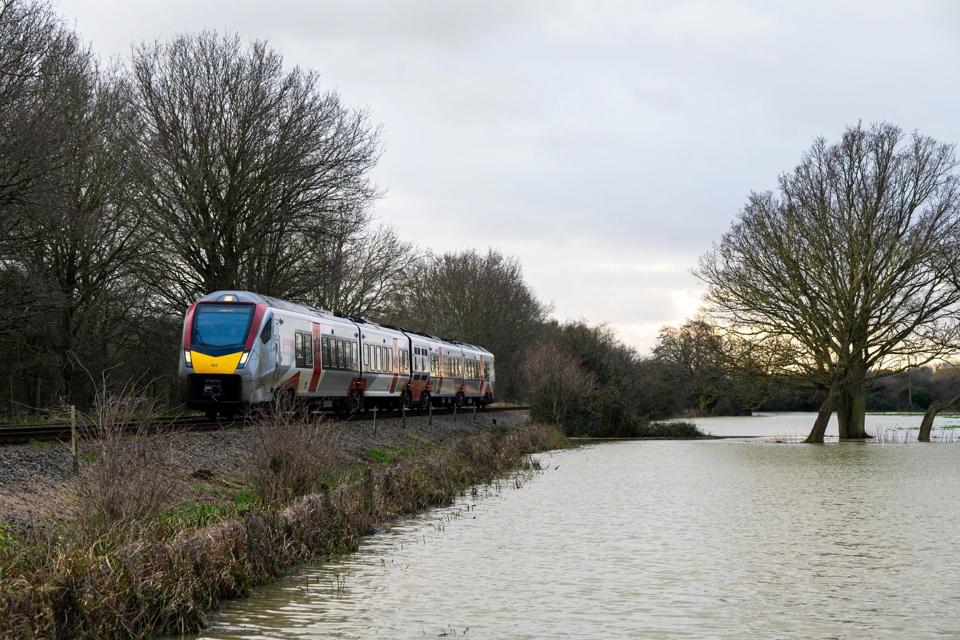

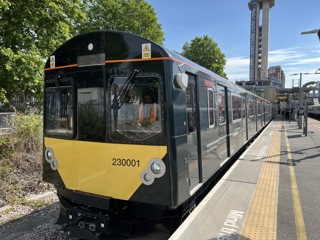
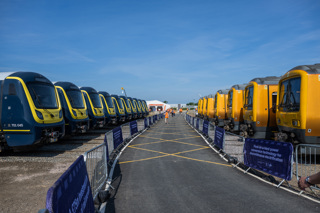
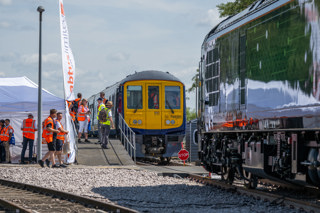

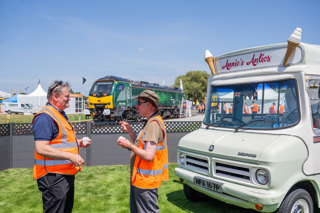











Login to comment
Comments
No comments have been made yet.